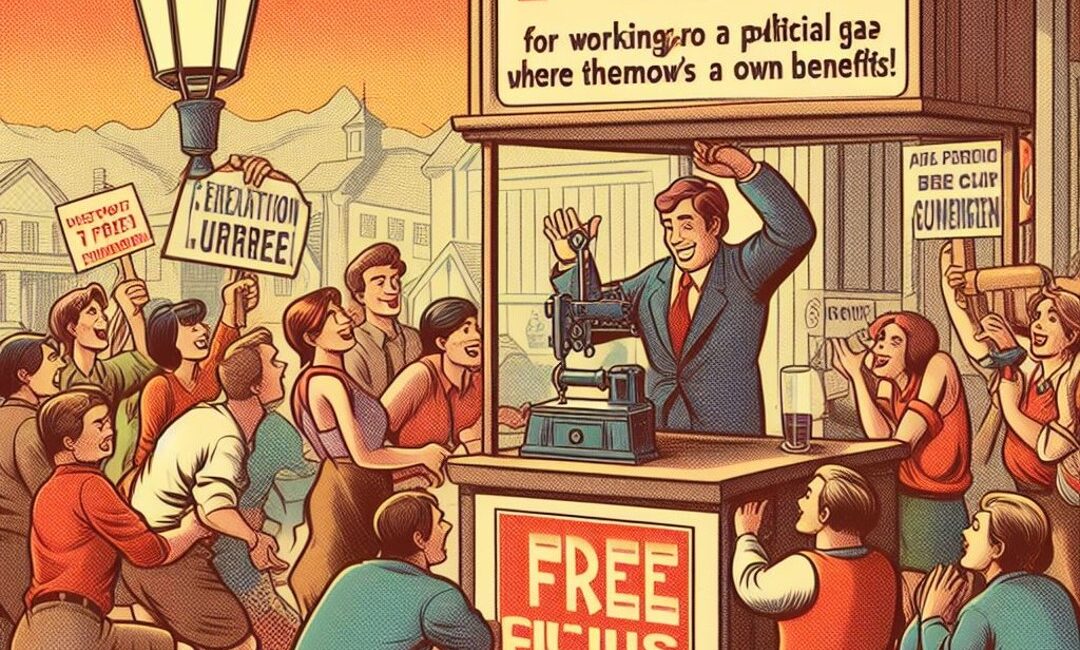In the intricate tapestry of political activism, there exists a cohort of individuals who tirelessly dedicate their time, energy, and often their dignity, to furthering the agendas of their chosen political parties. These unsung heroes, commonly known as volunteers, form the lifeblood of political campaigns and grassroots movements. However, behind the veil of noble intentions and altruistic fervor lies a harsh reality – many of these volunteers are exploited and marginalized by the very parties they serve.
The phenomenon of unpaid volunteering in politics is a double-edged sword, reflecting both the admirable spirit of civic engagement and the insidious exploitation of the vulnerable. For many uneducated and economically disadvantaged individuals, volunteering for a political party represents a pathway to empowerment and social inclusion. They are drawn to the promise of effecting change and championing causes that resonate with their lived experiences.
However, the stark socioeconomic disparities between the volunteers and the party elites create a power dynamic reminiscent of feudalism. While the party leaders bask in the glory of political victories and wield influence over policy decisions, the volunteers toil ceaselessly in the trenches, often without recognition or compensation. Their labor fuels the machinery of politics, yet they remain perpetually at the mercy of their masters.
Consider the case of Raju, a daily wage laborer from a rural village, who volunteers for Party X. Raju, despite his limited education and meager earnings, fervently believes in the party’s promises of upliftment for the downtrodden. He spends countless hours canvassing neighborhoods, distributing pamphlets, and mobilizing support for the party’s candidates. Yet, when it comes time for the party to fulfill its commitments to marginalized communities, Raju finds himself relegated to the sidelines, his voice drowned out by the cacophony of vested interests.
Similarly, Shanti, a single mother struggling to make ends meet, volunteers for Party Y out of a sense of duty to her community. She sacrifices precious time with her children to attend party meetings and organize rallies, hoping to make a difference in the lives of those less fortunate. However, as she witnesses the party leaders reveling in opulent banquets and wielding power with impunity, Shanti’s idealism begins to wane, replaced by a bitter sense of disillusionment.
The insidious nature of this exploitation is further exacerbated by societal norms that valorize self-sacrifice and obedience to authority. Volunteers are often conditioned to view their servitude as a badge of honor, sacrificing their own well-being for the collective good. Meanwhile, party leaders exploit this mindset to perpetuate their own agendas, reaping the benefits of free labor without assuming any responsibility for the welfare of their volunteers.
In the realm of political satire, the plight of unpaid volunteers presents a rich vein of material ripe for exploration. The absurdity of individuals sacrificing their time and energy for the benefit of others, only to be treated as disposable commodities, serves as a poignant commentary on the inherent contradictions of modern politics.
However, amidst the bleakness of this reality, there lies a glimmer of hope. As awareness grows and marginalized voices find platforms to amplify their grievances, there is a burgeoning movement calling for the recognition of volunteers’ rights and dignity. By challenging the status quo and demanding accountability from political parties, volunteers can reclaim agency over their own destinies and forge a path towards a more equitable and just society.
In conclusion, the phenomenon of unpaid volunteering in politics represents a complex interplay of idealism, exploitation, and societal norms. While volunteers may be motivated by noble intentions, they often find themselves ensnared in a web of exploitation and marginalization. It is imperative that we confront this reality with honesty and compassion, striving to create a political landscape where every individual’s contributions are valued and respected, regardless of their socioeconomic status.

